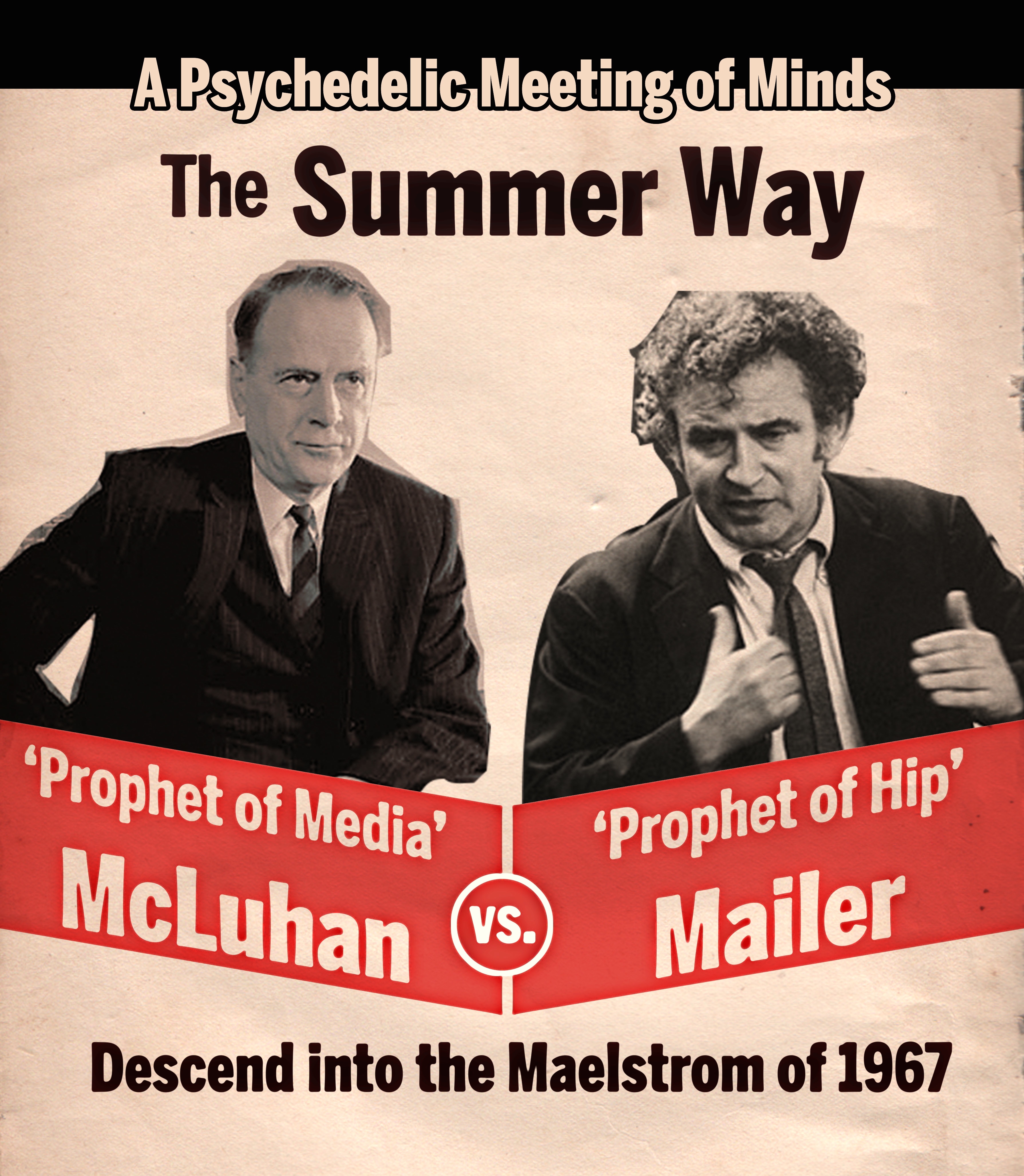Co-Created by
Maxwell Flaum and Brandon Woolf
The 2016 presidential campaign unleashed such a host of man-demons, that the time could not be more engorged for a play that interrogates the distressed psyche of the American male. The Summer Way is a long-days-journey, man-love tale that takes the form, quite naturally, of a politically-incorrect brodyssey, which gets sidelined by cocksure temper tantrums and entitled outbursts due to the very gritty structural dynamics – race, class, and media bias – in the respective backgrounds of the play’s protagonists. Sequestered in a Tony Soprano-style basement, ravaged by binge consumption of contemporary television and under threat of imminent drone “strike,” Torn (age 14-21, white) and Timbre (age 14-21, black) wrestle, literally, with major issues of the day in a podcast/”broadcast” designed to “speak to people.”
Mailer vs. McLuhan (1967)
Wondering if their basement banter isn’t just more psycho-babble stopping up the arteries of the world-wide-web, the two hapless, would-be media-gurus make a wild, nostalgic grab into the cathodic maelstrom of the obsolete, back to a “golden age” of American “respectability.” This golden grab lands them in the formidable grab-bag of a “haphazardly avant-garde” television era when public intellectuals, rock ‘n’ roll stars, and politicians were all go-go dancing in the same corporate miniskirt; a brazen and audacious time when white people could say just about anything, as long as it was entertaining. Thus, a 1967 televised discussion between Norman Mailer (prophet of hip) and Marshall McLuhan (prophet of the media), also titled The Summer Way, quantumly entangles itself into the fabric of the flagging podcast and boosts it, momentarily, into geriatric hyper-space. The result of this head-on-collision with “classic” TV, and subsequent descent into an older, black-and-white America on the brink of a personality crisis, leads to a host of questions Torn and Timbre (and their “obsolete” doppelgängers) must face up, and face off to: What is the role of the public intellectual in contemporary culture? Can there be new incarnations of the male and/or mail in a seemingly e-neutered American society? Is there something to retrieve from a bygone zeitgeist that was perhaps more brave, albeit less worldly, in the ever-precarious “global” sense of the word? And how do we bypass all the restive schizoid chatter, and really communicate with marginalized communities who are most at risk from the coordinated tech-heavy, full-frontal assaults of the trigger happy consul cowboy freakshow? In a time of pure locker room gore, when people will say just about anything and do, virtually, nothing, The Summer Way stages a veritable speed of light race riot (slowed down at the event horizon of obsessive scrutiny and critique) that takes a very unexpected (or not so) turn in the final black and white Nielsen rating analysis.
